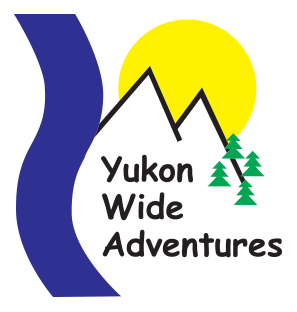If you like to participate in one of our guided tours you will definitely be accompanied by an experienced guide who will inform you about the behavior in the wilderness. Safety at any time is one of the main concerns of our company. Many of our customers have already experience in similar trips, others have been extensively informed by books and outdoor magazines. From our own experience we know that during the first visit in the Yukon everything is more impressive and intimidating as you imagine.
Here a few tips which will help you to be prepared for your wildness trip in the Yukon.
Choose your Camp and Camp Etiquette
The important thing to ensure a safe camp are to keep your equipment in order and clean. Pay attention when choosing your camps, that you are away from scats, animal tracks and possible feeding areas. Keep your distance from wildlife at all times.
Make sure that your camp fire is completely extinguished before you leave your camp or go to sleep. The dishes should be washed and packed away immediately after your meal. Dish water is best disposed in a hole beside the fire pit. Sewage, including bio soap does not belong in rivers and lakes. All leftovers and package material should be burned or sealed airtight.
Avoid smell of food on your clothing, don’t wipe greasy hands on your pants and make sure that your tent is set up in a safe distance to the cooking area. Never keep any food and other smelly products in your tent !!!
Keep your equipment packed up if not used at any time and handy to leave your camp in an emergency.
Personal Emergencies
Should you have an emergeny situation, such as an injury or loss of equipment, stay where you are. Prepare yourself to give signals to other travelers and airplanes. Make yourself as comfortable as possible. At any time you should have a lighter or matches and a knife. The best way to protect yourself in an emergency situation in the wilderness is to prepare a shelter, make a camp fire, have drinking water and wait for help.
If you have chosen our service we always know where you are and when you are expected back from your trip. If you don’t return within one day of your expected return date we will inform the RCMP to start search & rescue. In any case leave your travel route and expected return date with somebody.
Campfire
Fire for food preparation or to keep warm is permitted at any time on government land. National Parks have special rules (see link to Kluane National Park and Reserve of Canada).
During extreme fire hazard periods watch for fire ban signs. You should always take a camp stove with you to prepare your meals. If you have no chance to get a wildfire report update, you should always use your camp stove to make sure you follow the regulations.
Of course, it is only a weak replacement of your nightly campfire. But if you ever see a real wildfire or travel through hundreds of hectares burned landscapes you will understand the horrible consequences of careless use of campfires. Consider other peoples safety as your own.
Living from the land
It is easy for a tourist to purchase a fishing license and a hunting license for small animals. You can find various edible plants and mushrooms. Although it is very convenient to have variety in your menu you should never depend of living from the land. The climate in the Yukon is harsh for plants and limits the growth to a small variety.
There are a lot of good fishing sites where you catch northern pikes, graylings and trouts. We don’t recommend purchasing a hunting license for small animals because the hares – if you see one – are very small. Mare sure you take enough food on your wilderness trip. Every gift from the nature is an addition to your menu.
Please pay attention to the current fishing- and hunting regulations. If you disobey the law you may have to pay significant penalties.
Wildlife
As long as you keep your distance and don’t surprise wild animals, you shouldn’t have any encounters. It mostly occures when animals have young ones or feel cornered. For wildlife viewing we recommend good binoculars, the same applies to cameras. Don’t try to take a picture of a bear without keeping a safe distance – it could be dangerous.
You should never follow a retreating animal. It will become defensive and will attack you. It doesn’t necessary have to be a bear, moose, caribou or fox, even squirrels can cause bad injuries.
Think about how far it is to civilization. A small injury can have serious consequences.
